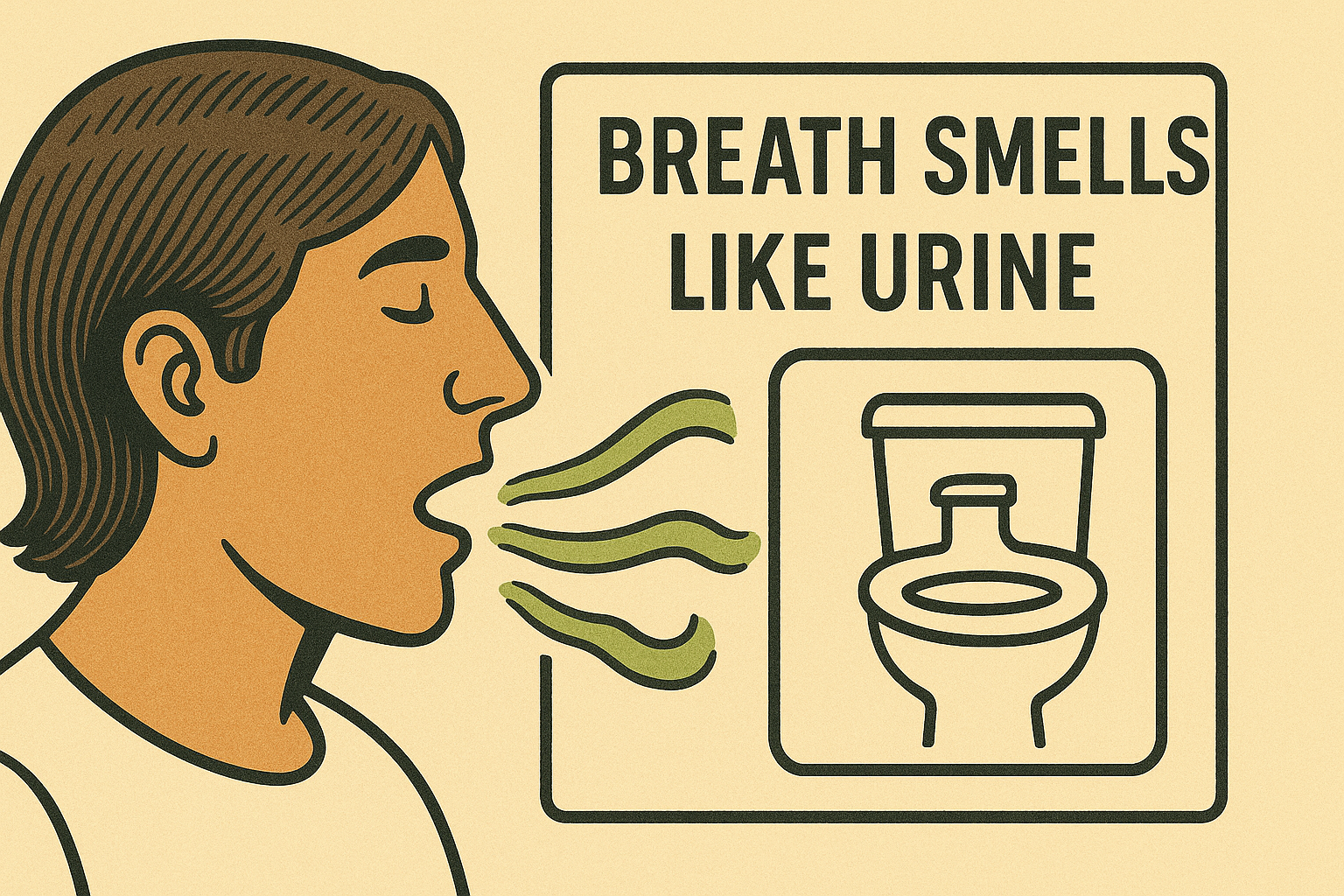If your breath smells like urine, it’s not something to ignore. While it might sound strange, this specific odor can be a sign of an underlying health issue, especially if it’s persistent.
What Could Cause It?
A possible cause is kidney dysfunction. When your kidneys aren’t working properly, because of a disease or an injury, they can’t filter waste from your blood effectively.
One of these waste products is urea. When urea builds up in your body, it can break down into ammonia and escape through your lungs, making your breath smell like urine or ammonia. It is often accompanied by an unpleasant metallic taste called dysgeusia.
This breath condition is called uremic fetor.
Some causes of uremic fetor are minor/temporary while others may require medical intervention.
Other possibilities include:
- Dehydration
- High protein diets
- Certain medications or supplements
- Sinus infections
- Helicobacter pylori bacterial infections
- Urinary tract infections
- Heavy alcohol use
- Urinary blockages
- Sinus infections
What To Do
If your breath smells like urine, and it lasts more than a day or two, you should:
- Start the treatment of the underlying disease
- Stay hydrated and monitor your diet
- Brush your teeth and floss on a daily baisis
- Clean your tongue regularly
- Use a mouthwash
- See a doctor, especially to check your kidney function
- Stop Smoking
A sudden or unusual breath odor, especially one that smells like urine, should not be ignored. It might be your body’s way of signaling that your kidneys, or your overall system, need attention.
Like any other health condition, ammonia breath can also lead to body image concerns and impact your confidence.
Addressing the root cause is essential: treatment usually involves identifying and eliminating the underlying issue, while also improving oral health through consistent and effective hygiene practices.
